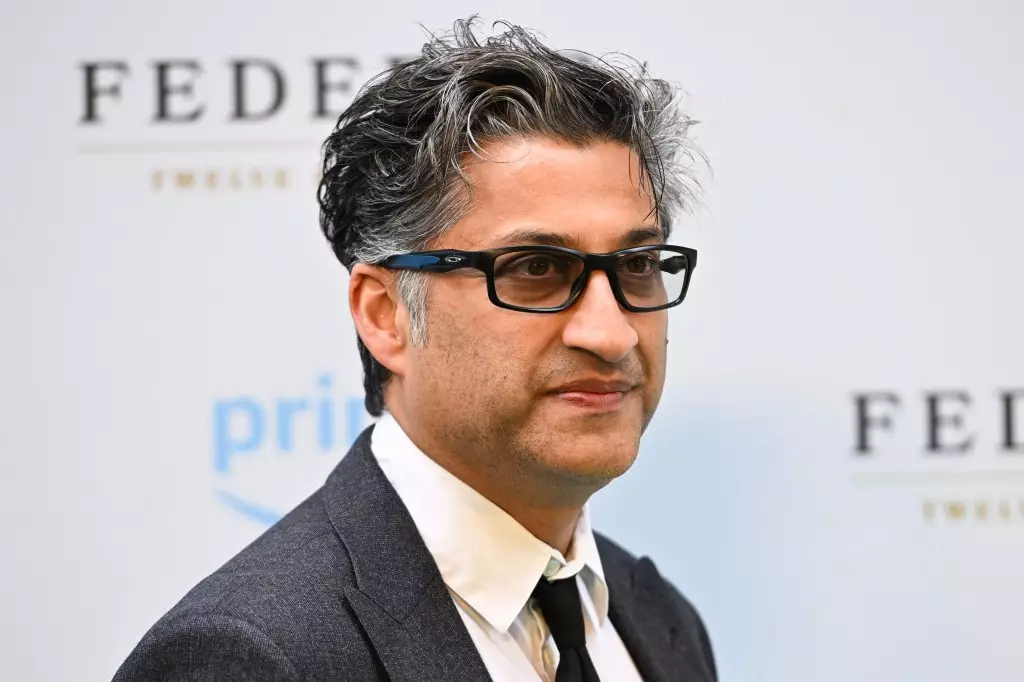British film director Asif Kapadia, renowned for his compelling documentaries, including the Oscar-winning “Amy,” reveals a startling narrative about the darker side of fame and the travel restrictions he faced. For almost a decade, Kapadia found himself on a “watch list” that led to constant questioning every time he attempted to enter the United States, a predicament that stemmed from a seemingly mundane incident during a trip to New York in the early 2000s. This was not merely about travel delays; it was a profound intrusion into his privacy and personal freedom.
Kapadia’s troubles began rather innocuously when a taxi driver noticed him taking photographs of the iconic cityscape. Upon arriving at the airport, he had anticipated a smooth transition home. Instead, he was accosted by law enforcement, receiving public scrutiny as his bag was searched, and he was questioned about his activities. This painful experience, marked by racial profiling as he was the only person of color present, laid the groundwork for a prolonged struggle with paranoia and suspicion.
Despite being a celebrated filmmaker, Kapadia’s encounters with security did not end with that singular incident. Each subsequent travel attempt was greeted with the same red light—an indicator that he was being monitored. What is particularly disheartening is how this situation transformed his approach to travel, with Kapadia even resorting to formal documentation from Universal Studios to facilitate his movements for work. The need for such bureaucratic assurance speaks volumes about the disquieting atmosphere surrounding him during his travels.
The emotional toll of being treated with suspicion, feeling as if he was constantly being surveilled, is a testament to the psychological burdens often overlooked in discussions about profiling and security measures. Rather than merely impacting his ability to work, the ordeal instilled a pervasive sense of fear and wariness, influencing his perceptions of safety and freedom in a globalized world.
In light of his experiences, Kapadia’s latest project, “2073,” becomes more than just a cinematic endeavor; it serves as a profound commentary on societal tensions, climate change, and the threats posed by populist leaders and tech giants. This genre-defying sci-fi film is set in a reimagined San Francisco, following a catastrophic civilizational event. Kapadia has cleverly interwoven archival footage, real interviews, and imaginative storytelling styles to paint a vivid picture of an uncertain future.
With the film premiering in U.S. cinemas in December and in the UK shortly thereafter, Kapadia’s work prompts audiences to reflect on the current trajectory of society. The narrative not only showcases his artistic vision but also acts as a broader allegory for the issues he himself faced—an exploration of how power dynamics distort individual freedoms and the pervasive effects of surveillance culture.
Asif Kapadia’s journey highlights essential discussions about privacy, identity, and the intersection of art and personal experience. His story sheds light on the intricate dynamics of power and control that influence not just individuals but entire societies. As audiences anticipate the release of “2073,” they are invited not only to experience an innovative film but also to engage with the layered narratives of struggle, resilience, and the quest for artistic truth. Kapadia’s work transcends mere storytelling; it urges society to question the implications of systemic biases and the reality of living under constant surveillance.
